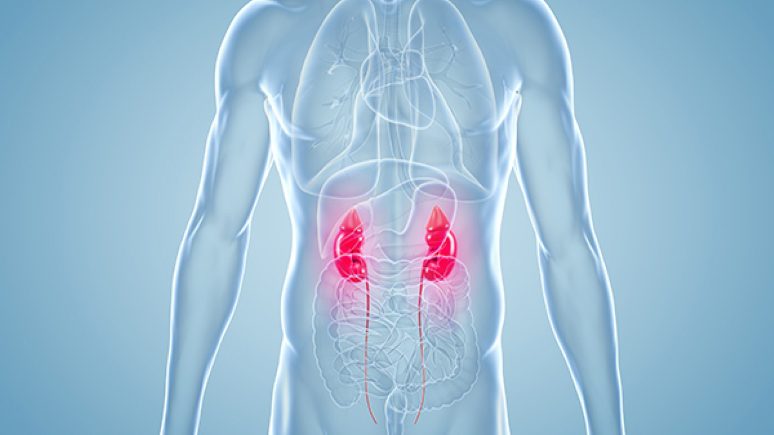What is kidney pain?
The kidneys are bean-shaped organs located in the back muscles in your upper abdomen. They are directly opposite each other, located on both the right and left sides of your upper abdomen. The kidneys have the primary function of removing waste products and excess fluids from the body. They are also in charge of producing hormones that regulate many bodily functions, such as:
- Blood pressure
- Acid regulation
- Red blood cell production
- The metabolism of calcium, sodium, potassium, and other electrolytes
However, sometimes you may feel a slight ache in your back and under your ribs where your kidneys are supposed to be located. This is kidney pain, and many factors can cause it. Pain can either be felt in the right or left kidney or simultaneously felt through both kidneys. This type of pain is differentiated from back pain because common back pain or muscle pain tends to be located lower in the back, while kidney pain is much higher in the back. But on some occasions, back pain can also be a symptom of kidney pain. You can notice this when the pain moves toward your side or groin area.
Kidney pain causes
If you are experiencing kidney pain, it could be one of many causes. Some of the most common reports of what causes kidney pain are:
- Kidney Stones – In most cases, kidney stones are among the most common causes of kidney pain. Kidney stones, also known as renal calculi, are solid masses of crystals that can develop anywhere along your urinary tract, not just in your kidneys. Kidney stones can be made up of any of the following crystals: Calcium, Uric Acid, Struvite, and Cystine. Calcium stones are perhaps the most common types of kidney stones.
- Pyelonephritis – Pyelonephritis or kidney infection can also be one of the leading causes of kidney pain. Kidney infection is one of the many types of Urinary Tract Infection or UTI. This condition most commonly begins in your urethra or bladder and will travel through both of your kidneys. This condition is dangerous as the infection can travel through your bloodstream, or worse, permanently damage your kidneys.
- Polycystic Kidney Disease – or PKD, is an inherited kidney disorder that causes cysts to form in the kidneys and cause significant kidney pain. These cysts are usually fluid-filled and may impair kidney function and eventually cause kidney failure.
- Kidney Cancer or Tumor – Kidney cancer, renal cell carcinoma being one of the most common types, can also cause kidney pain. Another type of kidney cancer is Wilm’s tumor, which may develop more likely in children.
- Obstructive Uropathy – Obstructive uropathy is just another term for when something entirely or partially blocks urine from flowing through the urethra. What happens is that urine will flow back towards your kidneys instead of flowing to your bladder.
There are also other causes of kidney pain, such as:
- Renal Vein Thrombosis – Blood clots in kidney veins
- Hemorrhage – Bleeding in your kidney
- Kidney swelling – due to hydronephrosis or backup of urine
- Bladder infection
- Kidney failure
- Kidney disease
- Urinary tract obstruction
- Hyperparathyroidism
Kidney pain risks
There are certain factors that, if you may have, will increase your risk of kidney pain development. Some of these are:
- Kidney stones – As stated before, if you have been diagnosed with kidney stones, they can be the primary cause of your kidney pain, no matter how small.
- Urinary Tract Infection – Urinary tract infection, abbreviated as UTI, also increases your risk of experiencing kidney pain.
- Gallstones – Having gallstones can also cause kidney pain. This is because gallstones can inhibit the body’s ability to digest food properly and may cause toxic matter not to be adequately digested, thus affecting most of the body’s excretory systems.
- Analgesic nephropathy – or injury caused to the kidneys by excessive intake of analgesic medications such as phenacetin and acetaminophen contained in paracetamol and aspirin.
Complications caused by Kidney Pain
It is important to note that kidney pain should always be consulted with your physician or health care provider at the first signs of its symptoms. This is to prevent further damage to your health and to prevent the following complications from happening:
- Permanent Damage to Your Kidneys
- Kidney Infection entering the bloodstream
- Kidney scars
- Kidney Disease
- Birth Complications – If you are pregnant and experiencing kidney pain, you need to get checked immediately as kidney infections can result in low birth weight and premature labor.
Click Here to read about Symptoms.
















Leave a Reply
You must be logged in to post a comment.